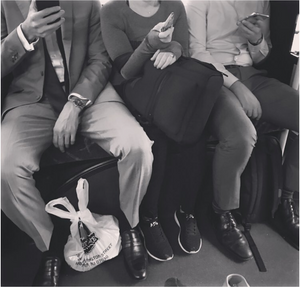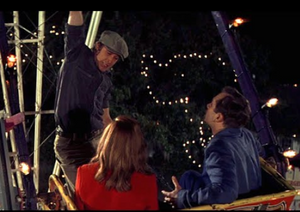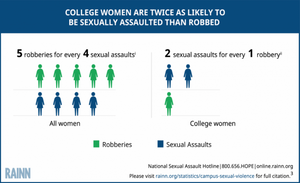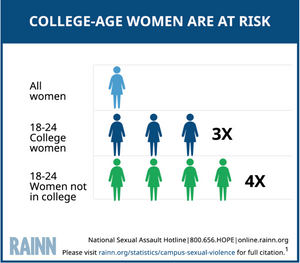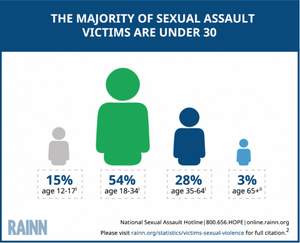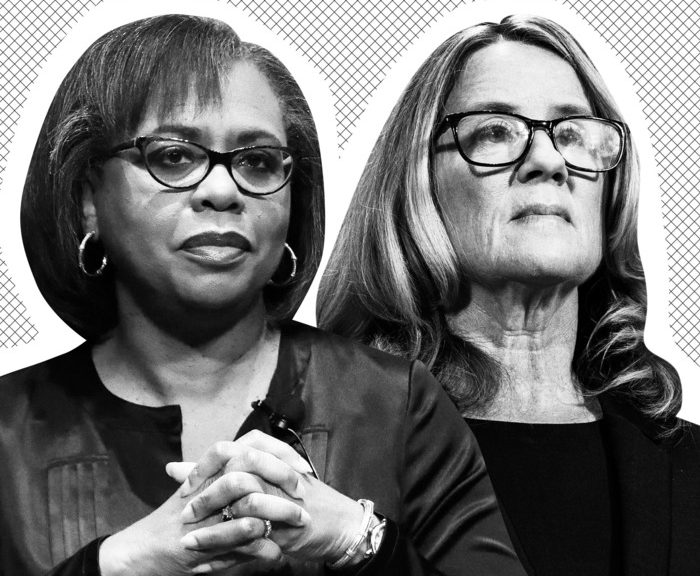By Alice Elbakian
Let me begin by explaining, as best as I can, an eye-opening, world-changing phrase that I learned about only too recently: emotional labor. It’s difficult to pinpoint it in our lives because it includes a myriad of daily tasks that are easily ignored. But broadly construed, emotional labor means caring; it means taking care of whatever needs to be taken care of, or attending to our daily human and social responsibilities. It encompasses actions and tasks that are necessary for living an independent, functional human life. Typical chores of a housewife come to mind: cooking, cleaning, tending to children. But more importantly, emotional labor applies to the concealed logistics of these tasks: it’s not just cooking, it’s discerning what and when to feed everyone that you cook for according to their dietary and nutritional needs. It’s not just cleaning, it’s being able to tell what needs to be cleaned, or fixed, or replaced, and then doing the needful. It isn’t just driving your children to school, it’s helping them to get ready in the morning, and then listening and speaking with them about their day once they’ve come home.
Emotional labor goes beyond the common strife of housewives in ways that are probably more relevant to the lives of all you people reading. It’s is advising your guy friend for the millionth time about a girl who just does not, and will probably never like him back. It’s being the one roommate who changes the toilet paper and replaces the garbage bag when it’s full. It’s being the one in your partnership who plans social events and actually entertains and interacts with the guests who are kind enough to attend. It’s being the one who chooses, buys, and wraps all the presents, and writes the heartfelt cards to match for special occasions. Emotional labor even includes reminding others of their obligations, like telling your forgetful dad when your mother’s birthday is, or worse yet, the date of their anniversary. If it feels like work and you’re not getting paid for it, it’s probably emotional labor.
Why did I bring this up? Emotional labor is gendered: women are overwhelmingly the ones who are burdened with the stress of emotional labor. Given the large scope of daily tasks and responsibilities that constitute emotional labor, the fact that it’s gendered is a huge problem. Well, for half of the population anyway.
If you’re not on board with me so far, you may be tempted to say that women should just shut up and stop their whining. Sending out a reminder to your partner about their next doctor’s appointment is a task the size of a text message, certainly not a “burden.” Sure, maybe the one visible part of this one example from a whole day’s worth of work takes the form of a single text message. But this ignores the fact that it takes effort, focus, and attention to willingly and extemporaneously consider your partner, and their health, and their next doctor’s appointment, and it takes even more effort, focus, and attention to remember their appointment for them, to know that we will have to remind them, and finally to actually do the task of reminding them. How can women have their own full lives if they’re spending all of this mental and emotional energy on people who can’t do basic tasks for themselves?
Emotional labor is for the most part invisible because it focuses a lot on planning and taking others into consideration, which all goes on in our minds. We all know how taxing it is to keep track of all of our obligations and daily tasks at once, and most of us only do these things for ourselves, without the added burden of performing emotional labor for other people. People are a lot to be responsible for. And it’s true that in most cases, nobody is holding a gun to our heads and forcing us to do things like send out reminders. But women are expected to do so nonetheless. And if we don’t, you’ll probably forget your appointment, and then blame us for not reminding you.
So emotional labor is work that needs to get done but that nobody wants to do, and women are primarily the ones who end up buckling down and getting it done. We hardly notice or even count what women do as actual work. For these reasons, being a woman also means being taken for granted, daily. Don’t believe me? Go ask your mom. Women are the ass-wipers and tooth-brushers of the world. We’ve convinced ourselves, and have therefore grown comfortable with telling ourselves, that women just are the ones to do these things.
We might believe this for any number of reasons. Some people believe women perform emotional labor because they’re supposed to, or they’re just naturally better at it. Either one of those reasonings makes you a sexist prick. If you act as though you are entitled to women’s time, energy, focus, and attention, this is likely the problematic line of thought from which you operate. Work is work for everyone. Being “better” at something doesn’t mean we actually want to do it, or that we should do it more than anyone else does. And, surprise-surprise, getting good at something is a direct consequence of repeated practice. It has nothing to do with natural ability, and certainly not when the task in question is basic caring and taking on responsibility.
Others believe women perform the bulk of emotional labor because “they’re just nice enough to do it.” No. It’s not an issue of kindness, it’s doing what needs to be done and that means staying calm enough to put up with your bullshit. For example, do I want to be the one in my relationship who changes the sheets for the twelfth time in a row? No. Will I? Yes, but not because I’m being nice, rather because these sheets that my partner and I both sleep on are clearly dirty and need to be laundered, and in order for that to happen, they need to be taken off the bed, and when that happens, new sheets need to go on for sleeping.
“Why can’t you just ask your partner to change the sheets for once?” I could, but that doesn’t actually do much to address the problems for women like me or problems of emotional labor in general. Ironically, it would be a further expenditure of my emotional labor to teach my partner about bedding and sheet hygiene, for instance. Shouldn’t an adult know that by now? Do you want to know the secret to adulting? Performing emotional labor. Being responsible for things that you don’t want to be responsible for, but doing them anyway because they need to be done; because you owe it to yourself and the people around you to meet the basic requirements expected of you as a human being so that someone else doesn’t have to pick up your sack of slack, because it is a very heavy and unnecessary sack at that. The point of emotional labor is that you find it within yourself to care, and you take initiative. It is unfair that I should be burdened with even more emotional labor for trying to get someone else, my “partner”, to do the bare minimum.
Second of all, knowing if and when the sheets need to be changed is half of the emotional labor of changing sheets. If I’m going to tell him every time it’s time to change the sheets, I may as well save myself the headache and aggravation and hire a scheduled maid, or just do it myself, since I can’t afford a maid. There’s a pattern to heterosexual relationships: it starts with man-children who never learned to perform emotional labor on their own, probably because their mothers did it for them and they never bothered to learn because they didn’t acknowledge their mother’s work as work in the first place. Then – best case scenario – the man-child conveniently puts in just enough emotional labor in the beginning stages of courtship to reel women into this unbalanced relationship dynamic. Ah, so you do know what’s expected of you, you just stop doing it once you’ve won your prize. Then, the women in the relationship are tasked with raising their own adopted man-child to reach the basic standards of human functioning so that they may now apparently be considered worth their time and effort in the first place. I’m exhausted just imagining that. No wonder so many women simply prefer to be single.
It seems like there are a few options to get away from this kind of pattern, whether in a romantic relationship or not. The one that I suspect is on most peoples’ minds is to get the heck out of that relationship. Friend, boyfriend, family member, doesn’t matter. Just end it. There are some cases where women do have the opportunity to end their role as the free-ride-providing camels of life. We hear and read a lot about ending toxic relationships, cutting ties with people who demand too much of our valuable time and attention without reciprocating much, if anything, of their own. Maybe in some relationships it is possible to walk away like this. Ladies, if you’re his mother more than his girlfriend, friend, or whoever you actually are, if he’s not showing any signs of growth, if you have to pull teeth to get him to do for you what you do for him, dump his ass. Let it be a lesson to yourself in self-respect.
But of course things aren’t so easy and there are complications with this fix. What about women who don’t want to be alone but are sick of investing the necessary emotional labor to keep their relationships afloat, only to finally learn once more what they’ve already learned from all the men before? How much longer should we pretend that the problem is women’s standards instead of men’s behavior? [1]
So walking away from a relationship still has problems attached. It will only succeed in lucky cases, which are mainly romantic relationships and perhaps friendships. For a lot of women – and this is especially true for working, lower, and lower-middle class, colored, and/or multicultural women – the option of leaving the relationship really isn’t there. For example, cutting ties with family members who need you isn’t a “suck it up and do it” kind of thing. Families rely heavily on mothers and daughters to complete tasks ranging everywhere from filing taxes and balancing the checkbook, to picking up and caring for younger siblings after school, to the strenuous task of planning meals for a diabetic in the family. Most of these families would fall apart without the women there to do what they do.
Indeed, statistics show that widowers are 30 % more likely to die than widows (Ferness, 2012). This is likely because without women to care for them, widowers suffer in both their emotional and physical health, and without anyone to maintain their social lives for them, they suffer with no support system. This also explains why widowers are three times more likely than widows to remarry after losing their spouse. (Isaacs, 2015) Men literally die without us there to care for them, because they don’t know how to take care of themselves.
A few things should be relatively clear by now: emotional labor is work that is necessary for maintaining human relationships and a functional life, it is work that is primarily performed by women for both themselves and others around them, and it is work that, if performed by women, is not acknowledged as work at all. [2] I’ve offered a handful of examples and a couple of statistics that show the extent to which men and families are reliant on women and on the emotional labor that they perform. If there were any doubts about it until now, it should be an easy, albeit unpleasant pill to swallow that we are aware of all of the daily labor that women perform, but we seldom acknowledge or consider it as work.
Mother’s Day, then, seems like the perfect holiday for someone like me. How could a feminist oppose a holiday devoted to celebrating some of the hardest working women on the planet? Without saying so, Mother’s Day seems to exclusively focus on the emotional labor of being a mother. Some Mother’s Day celebrations involve performing emotional labor for our mothers while we give them a break, such as preparing breakfast in bed. Other activities serve to finally acknowledge her labor, like writing her a heartfelt card confessing how much we appreciate her and all the little things that she does for us. Still, other activities relieve her of the emotional labor that otherwise would have been expected of her on this day, such as when we gift her a “day off” with something like a mani-pedi or a movie marathon.
I like Mother’s Day in that it focuses on women and honors the impossible task of being a mother. I don’t have a problem with any of these activities. Do treat your mom however she likes to be treated, because she probably deserves it. Do not, however, delude yourself into thinking that this one day of appreciation sufficiently makes up for an entire year (and lifetime) of invisible, unacknowledged, and likely unreciprocated labor.
I certainly have a problem with people who treat Mother’s Day as a one-off holiday. This is on some level a personal decision, and therefore the people making it are at fault and are to blame more so than the name of a particular day. But my problem with Mother’s Day first of all, is that in virtue of being one of the only holidays that acknowledges emotional labor, it attributes all of this kind of labor to mothers only, when in fact most women in general perform emotional labor. Where is their holiday? Moreover, since emotional labor is the responsibility of everyone, let’s stop gendering celebrations of it. Even if the U.S. officially recognized International Women’s Day, we would still end up celebrating emotional labor as part of being a woman. Wrong message. We love that you want to thank us for doing this stuff for you. But if you really want to show appreciation, start doing this stuff for yourself.
My second problem with Mother’s Day is that is allows us to believe that the appreciation that our mothers and other women deserve can be squeezed into one day. We think that because we have this designated day, then on other days it’s not important that we show any (or much) appreciation; we don’t need to help them or lessen their burden on any other day. In assigning ourselves this one day out of 365 to acknowledge, appreciate, and most importantly, reciprocate our mothers’ work, we tacitly absolve ourselves of what is actually a daily responsibility to not only our mothers, but likely all the women in our lives.
If you’re thinking, “This isn’t me, I appreciate my mom on a daily basis”, I’m not doubting that you do. I am doubting however that you even realized how much she does for you and others, and therefore I’m doubting that you’ve shown her the adequate level of appreciation and reciprocation that she deserves, since you probably didn’t have the full story beforehand. I’m also doubting that you realized that women who aren’t mothers perform similarly large and stressful amounts of emotional labor for friends and partners who stay silent about their appreciation, assuming that they aren’t an entitled asshole. Emotional labor deserves daily recognition in virtue of being performed daily. And sheer acknowledgement is only one step up the hill. An important one, but still only one step.
I suspect that part of the reason it’s convenient to hold Mother’s Day annually is because it takes effort, and is perhaps difficult, to show someone that you care about them. It takes more effort to show how much you care when you have more reasons to care and more love to give, because you have so much to thank her for, and so many ways of doing so. But if this emotional labor is so hard, and if our mothers and other women don’t get to take a break the other 364 days a year, then neither should we. Mother’s Day is the only day of the year that we can finally put some name or understanding to what exactly our mothers and other women do for us, daily. But now with the phrase “emotional labor”, we can identify and reciprocate this work year round—for any and all women who deserve it, not just our mothers.
So the next time you celebrate Mother’s Day and feel proud of yourself for sending your mom a fragrant bouquet of roses with a spa voucher strategically slipped in, do your mom one better and actually make a difference in her daily life: if there’s something you can and should be doing for yourself instead of having her do it for you – and there probably is – then don’t wait for Mother’s Day, own up and accept your own responsibility. The same goes for any girlfriend or partner. Educate your lazy little brother (or father!) about what emotional labor is, and tell him to get his act together because your mom (or you) deserves better. Heck, maybe it’s your sisters who managed to escape the load of emotional labor, in which case they could learn a thing or two also. Tell your mom that you appreciate it when she does your laundry for you. And then learn how to do your laundry yourself because you are a grown ass adult. Your mom is not a personal laundry-doer. If your girlfriend does any of this for you, you owe her a paycheck and also probably much better sex.
Perform more emotional labor for yourself so that your mother and the other women in your life can have their own lives. No, scratch that, perform emotional labor for yourself because that is what is expected of you as a human. But also, don’t disrespect your mom and the other women in your life by making your problems and your daily tasks their responsibility. Women have their own lives, too. If you find yourself performing copious amounts of emotional labor with no reward, I urge you to demand the acknowledgement and reciprocation that you deserve. Take note of who stays and who goes.
[1] There are of course women who do not perform emotional labor, and this would cause similar problems in homosexual relationships, but since women generally do perform emotional labor, as we are socialized to learn it and perform it, it’s more likely that this is an issue that applies to heterosexual couples and possibly homosexual male couples.
[2] What I mean by this, is that people will jump at the opportunity to acknowledge and praise men for doing the bare minimum, but offer nothing to women. This is because the task is expected of women but not of men, despite the task’s status as ordinary and non-gendered. For example, a father who braids his child’s hair or cleans his home is likely to be acknowledged and admired. A woman who does the same is a prop that fades into its rightful surrounding.





